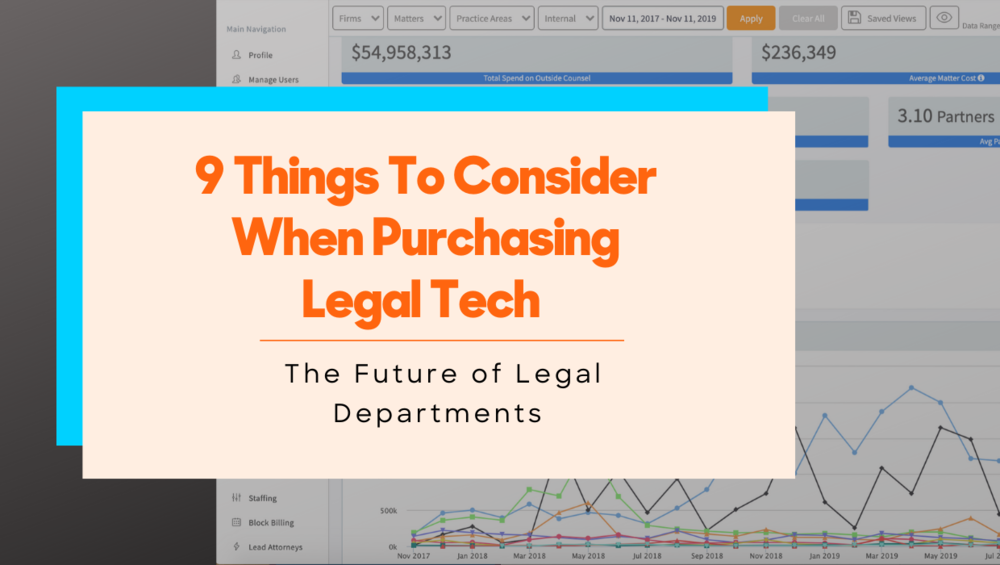One thing’s clear: legal tech is being catapulted into the legal industry at a staggering rate. It is bringing about changes that will forever transform the practice of law and the delivery of legal services. The question you should be asking yourself is this: “Does my legal team have control over where our legal spend is going and why we’re spending where we are?”
1. Are your legal bills going up year over year?
If your legal bills are increasing, you’re not alone.
Transparent information about legal spending has become increasingly hard to find. Our data shows hourly firm rates are tracking at almost four times the rate of inflation. The industry is clearly shifting towards a boost in annual profits for law firms, but little has been done to hold them accountable for their rapid rate increases.
Today, law firms are operating like sports teams – gathering the top athletes and pulling them together. Ultimately, this can get extremely expensive.
We all agree that if you find and recruit LeBron, you should pay him LeBron wages. However, it is likely that only 5-10% of your firm’s partners are classified as top-tier talent, and within those firms, they charge Lebron rates for every other 2nd and 3rd-tier partner.
Bodhala helps you unbundle pricing and pay partners appropriately, based on their capabilities and the matters they work on.
At the end of the day, we’re advocates for data-driven solutions that improve the relationships, accountability, and transparency between legal firms and in-house counsel.
Now that we’ve got that out of the way, let’s continue to explore other factors to consider when purchasing legal tech solutions.
2. Identify your key challenges and bottlenecks
Committing to a new tech solution undoubtedly requires a certain level of internal due diligence. In order to get the most out of your investment and work towards your desired outcome, your in-house legal counsel must first identify its key challenges and bottlenecks to set clear criteria.
The truth of the matter is, no tech solution can solve all of your problems. The challenge is finding one solution that best addresses your core issues.
Begin the auditing process by holding internal discussions about the tasks that are taking up the majority of each employee’s time. This discussion may reveal budgeting issues or a lack of internal processes to manage rate card RFPs. Take note of all the issues at hand.
Once you identify the gap in processes, acknowledge the skills that you have on the team and the level of effort required to complete each task. Be sure to note any opportunities to improve efficiency.
Why stop there?
Some tech solutions are designed to help you become more efficient, while others provide capabilities that you could not handle on your own. Bodhala can do both, so let’s now explore how this materializes.
3. What systems do you use to ensure your data is clean and accurate?
While most legal-tech solutions tout analytics and reporting capabilities, few do it well. Effective solutions go beyond reporting and help you gather insights that inform key business decisions. The legal industry, in particular, faces complexities that are not often addressed in catch-all reporting and data-visualization solutions such as Tableau.
Further, e-billing platforms have also failed to efficiently analyze spending on a larger scale. E-billing may give you insight into what you’re spending your money on, without giving you the “why” or “how.”
The main reason for discrepancies and irregularities in your legal data is the fact that taxonomies vary across legal practices and firms, which complicates datasets and provides inaccurate results. Complexities in discounts applied, inaccurate data entry, and many other factors also contribute to the issue.
Bodhala’s Hercules database provides source-of-truth data sets that help augment and enhance line item data. Hercules provides data around firms, timekeepers, practice areas, anonymized street rates, and domain-specific measurements that provide unprecedented transparency.
Supplementary to Hercules’ QA rules, Bodhala’s Data Ingestion Team also guarantees that your data is clean and consistent across the board.
4. Capabilities that improve visibility and transparency
The lack of clarity, visibility, and transparency has allowed legal firms to get away with being big black boxes, complete with messy billing, hidden charges, and inconsistent rates. These factors have made accurate billing nearly impossible to track.
When shopping for a legal tech solution, identify unique offerings like Bodhala’s standardized rate cards.
In the past, rate cards provided little to no explanation on industry rates, net effective rates, relationship discounts, and the practice area discounts that were being applied to your invoices. Bodhala consolidates and standardizes all your rate cards in one place, which provides details on discounts and write-offs in every line, allowing you to dive into the details and uncover where your dollars are going.
5. Take data security seriously
Legal and financial data is comprised of personally identifiable and proprietary information that can put your business in danger if compromised. While basic security protocols may seem standard, it’s simply not safe to assume that your data will be protected.
When looking for your next legal tech solution, be sure to ask questions about the prioritization of data security, data encryption, backups, and other strategies that are being employed to keep your data safe.
6. Ease of implementation: integrations with your current workflow
Before you pull the trigger on finding the right legal tech solution, you must evaluate your onboarding process and how it affects your workflow. The last thing you need is an onboarding process that takes 10 times longer than expected and completely reorganizes the way you work. The time and resources that you lose implementing this new technology is too costly and must be considered when calculating the total cost of ownership.
Tech platforms are inherently complicated, especially when dealing with tremendous amounts of sensitive legal data. To better predict your success with a legal tech platform, look for a solution that works with you and your external teams. You want something that is easy to onboard, but is also easy to educate your team on. Don’t be afraid to ask questions about a dedicated account manager, training programs, reference materials, and communication channels.
7. Tracking and measuring your desired outcome
Set SMART (specific, measurable, attainable, relevant, time-bound) goals in the beginning of your tech evaluation process. Refine those as you make your vendor selection and hold both the team and platform accountable for them. Remember, if you set goals together, you’re sharing the responsibility to extract success from your new investment.
For example, you can set KPIs around time saved on RFPs or the percentage saved on outside legal spend. Whatever it may be, ensure these goals are baked into regular touchpoints with your account team during your QBRs.
8. Meaningful client support
Finding success on any tech solution requires a proper onboarding and training process. Adopting a new solution is rarely plug-and-play and requires new workflows, internal product experts, and comprehensive training.
As we like to say, garbage in, garbage out. You’re more likely to find success with your new platform if your team has the foundational training to use it correctly.
A dedicated client success manager is also integral to your success. A product expert can help you maximize results with the least amount of effort possible, so you’re not stuck wasting time on a product that you purchased in order to save time and money.
9. Leverage referrals to find the right solution for you
While online review sites like G2 and Capterra can provide a general sense of a product’s core capabilities, there’s no better way to see if a solution may be right for you than to obtain a word-of-mouth referral.
Ask for a reference and take some time to speak to current customers of the tech solution. Come prepared with questions and get an honest understanding of both the good and bad of the solution you’re shopping for.
Try Bodhala today!
Get Started
Like what you’re seeing?
In our first Bodhala Explainer video, Chris Bennett, our VP of Strategy, breaks down staffing ratios and what they mean for your bottom line.
Shoot us an email at [email protected], and let’s talk about how to get started.






